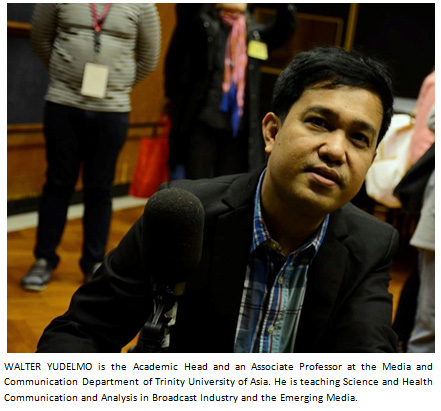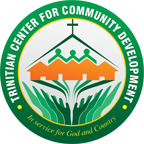PH Online Media Inquiry on COVID19 Symptoms, Doubted—Research Reveals
 RESEARCH by Walter Yudelmo—Following the COVID-19 confirmed cases in the Philippines in January 2020, Dr. Walter H. Yudelmo, the Academic Head of the Media and Communication Department monitored if there will be an available COVID-19 online medical assessment.
RESEARCH by Walter Yudelmo—Following the COVID-19 confirmed cases in the Philippines in January 2020, Dr. Walter H. Yudelmo, the Academic Head of the Media and Communication Department monitored if there will be an available COVID-19 online medical assessment.
During the first day of the enhanced community quarantine (ECQ), a Philippine-based company established the FIGHTCOViD app to help Filipino in assessing their need of testing if they are symptomatic. Though the app is still at a starting point, the online media is a hope to extract information and protect oneself from the pandemic. Also, Philippine Information Agency reported that medical doctors manifested their willingness to answer medical conditions online. Thus, the fraction of online medical assessment is an alternative to physical diagnosis during ECQ which needs to be studied for possible health and governance practice utilization.
The Philippines imposed the ECQ on March 16, 2020 as the number of COVID-19 patients continued to rise in Metro Manila. COVID-19 that started in Hubei, China became an emergency health issue in the Philippines as the country experienced contagion that later on became an outbreak when the Department of Health confirmed the first case of the disease on the January 30, 2020. The virus was detected from a Chinese national who travelled from Wuhan and Hong Kong.
The new media theory was used to conceptualize the possibility of COVID-19 online medical assessment during health emergency. Figure 1 shows the relationship of online medical assessment and the new media. The results of the study can be considered by the Philippine government for future health challenges, hence the COVID-19.
The participants were gathered through online survey from March 16, 2020 to March 27, 2020, the first two weeks of ECQ in Metro Manila (see Table 1). Collective results when the respondents grouped into categories of revealed that in the future, online media will allow medical assessment to be as efficient and accurate as personal consultation. Every technological invention is made with a particular purpose. These innovations help the public get updated with developments on any health conditions. Today, the online media offers a wide range of COVID-19 information that can be easily accessed by everyone (see Table 2).
The online media can facilitate connections among health providers, researchers, policy implementers, and health care customers. With the forces of both online media and health sciences, the creation of healthcare mechanisms can be formed. Thus, online media use for COVID-19 can transport knowledge without alarming the society brought about by overstated news. Though using the online media can lessen the anxiety of people during pandemic, we need to be mindful that not all information is truthful. Results of the study say that online media use for COVID-19 knowledge creates doubt among Metro Manila residents (see Table 3).
The respondents of the study rely on connectivity through different online media platforms. They are adept with its usage and are equipped on variants. At the present time, the online media have been used as an instrument to disseminate information on COVID-19. More so, we can count on the new media to voice out the cries and difficulties of many Filipinos. It helps family keep in touch while they are required to stay at home.
The acceptability of the respondents of COVID-19 online medical assessment is promising. Having the right measures, COVID-19 online medical assessment will prove to be very effective. Though, it will most likely depend on accessibility and trust of the respondents to medical frontliners and implementers.
Moreover, COVID-19 online medical assessment is a great tool for a patient-doctor communication where it lessens the possibility of getting the virus through contact transmission. Though it is not totally precise compared to that of the personal medical assessment, the online medical assessment is the best as of now to keep people from going out of the house due to limitations of ECQ. Accordingly, Metro Manila residents strongly recommend and are willing to have online medical assessment (see Table 4).
The opportunity for COVID-19 online medical assessment in the Philippines raises many questions among the respondents that made them have reservations in seeking medical consultation online. An immediate concern is who will be regulating online consultation to arrive at exact medical assessment. Also, the authenticity of non-disclosure agreement between health providers and patients is needed to protect privacy issues and interests of both parties. Thus, they have doubts on how COVID-19 online medical assessment provides the same quality assessment compared to that of a personal consultation.
The ECQ in Metro Manila simply indicates that people are advised to stay home and maintain social distancing to prevent further transmissions of the disease. In a legal parlance, the implementation of ECQ suspends transportation, regulates basic necessities, and assigns or designates uniformed personnel at boundaries for checkpoint to implement compulsory quarantine measures. It is a preventive measure that the Philippine government is doing to protect the health welfare of all. Somewhat, as the needs arise, respondents have less confidence on COVID-19 online medical assessment.
Though Metro Manila residents have high hopes that COVID-19 online medical assessment is an imperative call to stop the spread of COVID-19, it is still far from the reality with regard to its acceptance. For them, as of the moment, it is a practical means to address COVID-19 and other health related needs to protect both health workers and patients through avoidance of physical contact to annihilate the virus. ECQ requires respondents to practice social distancing and imposed home quarantine upon the people to avoid contagion. In this situation, a probable means of medical consultation is through online, but the study revealed that majority of the respondents did not experience any online medical assessment (see Table 5).
Indeed, technological inventions had flattened the world. In this study, majority of the Metro Manila residents are equipped with knowledge and skills on online media use. Community, institutions, and families who were trapped at the time when government announced the ECQ can explore options on the potential of online medical assessment. Though, in general, COVID-19 online medical assessment precision doubted majority of the Metro Manila residents.
___
This research article is currently being process for journal publication. To get a copy of the manuscript, you may email whyudelmo@tua.edu.ph.


 The Trinitian Center for Community Development is the official arm for Community Extension Service that supports Trinity University of Asia in carrying out its Vision and Mission of involving her constituents to live a LIFE that is GOD-centered and in service to the community.
The Trinitian Center for Community Development is the official arm for Community Extension Service that supports Trinity University of Asia in carrying out its Vision and Mission of involving her constituents to live a LIFE that is GOD-centered and in service to the community.